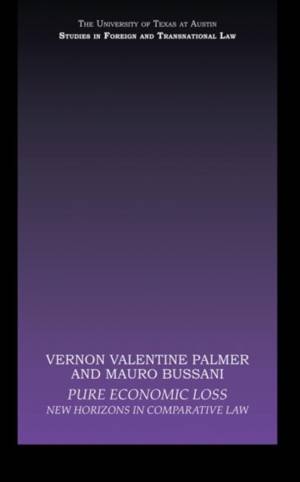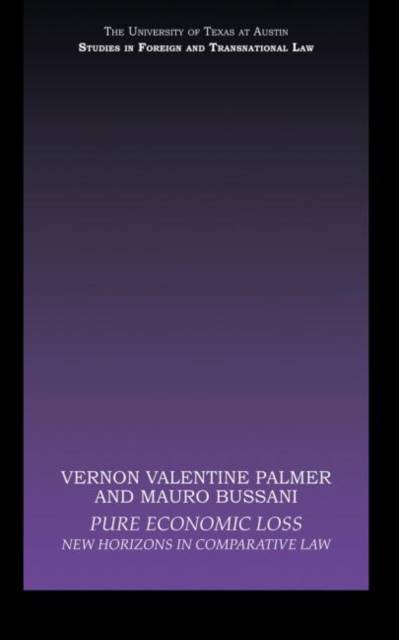
- Retrait gratuit dans votre magasin Club
- 7.000.000 titres dans notre catalogue
- Payer en toute sécurité
- Toujours un magasin près de chez vous
- Retrait gratuit dans votre magasin Club
- 7.000.000 titres dans notre catalogue
- Payer en toute sécurité
- Toujours un magasin près de chez vous
Description
Pure economic loss is one of the most-discussed problems in the fields of tort and contract. How do we understand the various differences and similarities between these systems and what is the extent to which there is a common-core of agreement on this question?
This book takes a comparative approach to the subject, exploring the principles, policies and rules governing tortious liability for pure economic loss in a number of countries and legal systems across the world. The countries covered are USA, Canada, Japan, Israel, South Africa, Japan, Romania, Croatia, Denmark and Poland, with the contributors taking a comparative fact-based approach through the use of hypothetical problems to analyze and then summarize the individual country's tort approach. Using a fact-based questionnaire, a tested taxonomy, and a sophisticated comparative law methodology, the authors convincingly demonstrate that there are liberal, pragmatic and conservative regimes throughout the world. The recoverability of pure economic loss poses a generic question for these legal systems - it is not just a civil law versus common law issue. It will be of interest to students and academics studying tort law and comparative law in the different countries covered.
Spécifications
Parties prenantes
- Auteur(s) :
- Editeur:
Contenu
- Nombre de pages :
- 338
- Langue:
- Anglais
- Collection :
Caractéristiques
- EAN:
- 9780415574587
- Date de parution :
- 08-12-09
- Format:
- Livre broché
- Format numérique:
- Trade paperback (VS)
- Dimensions :
- 140 mm x 216 mm
- Poids :
- 394 g







